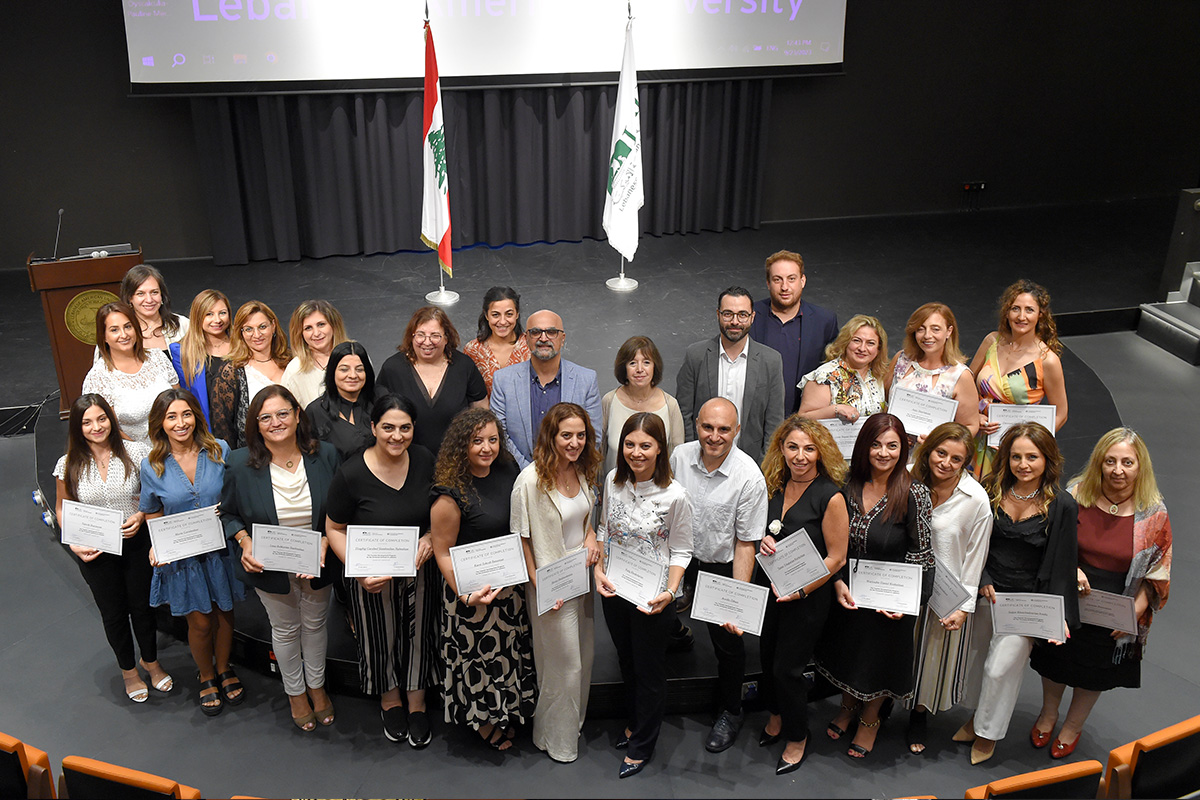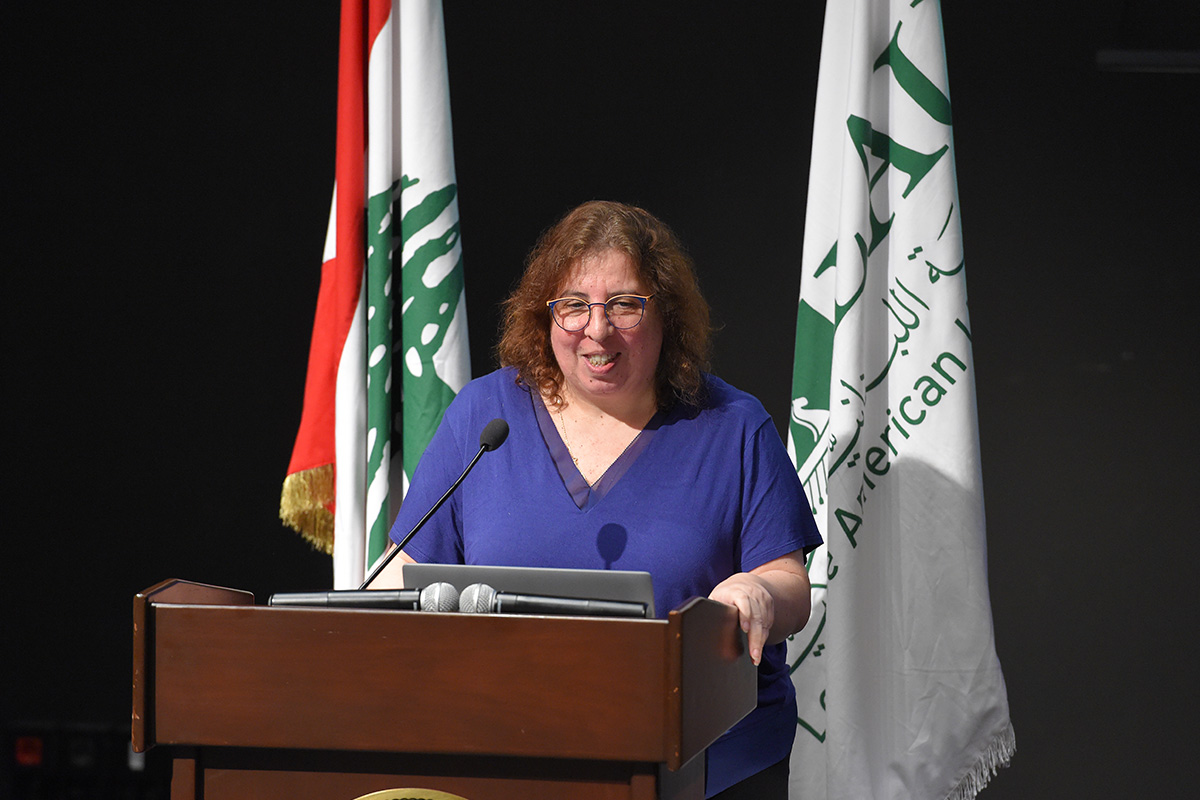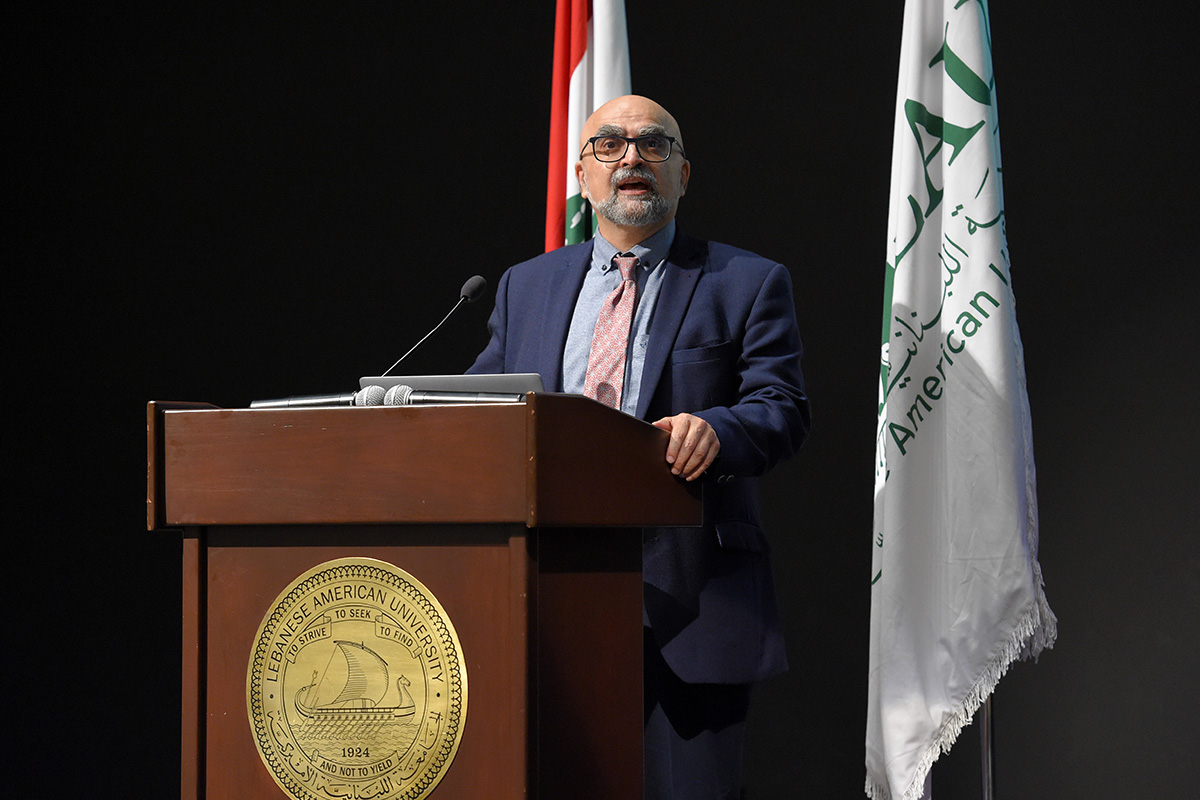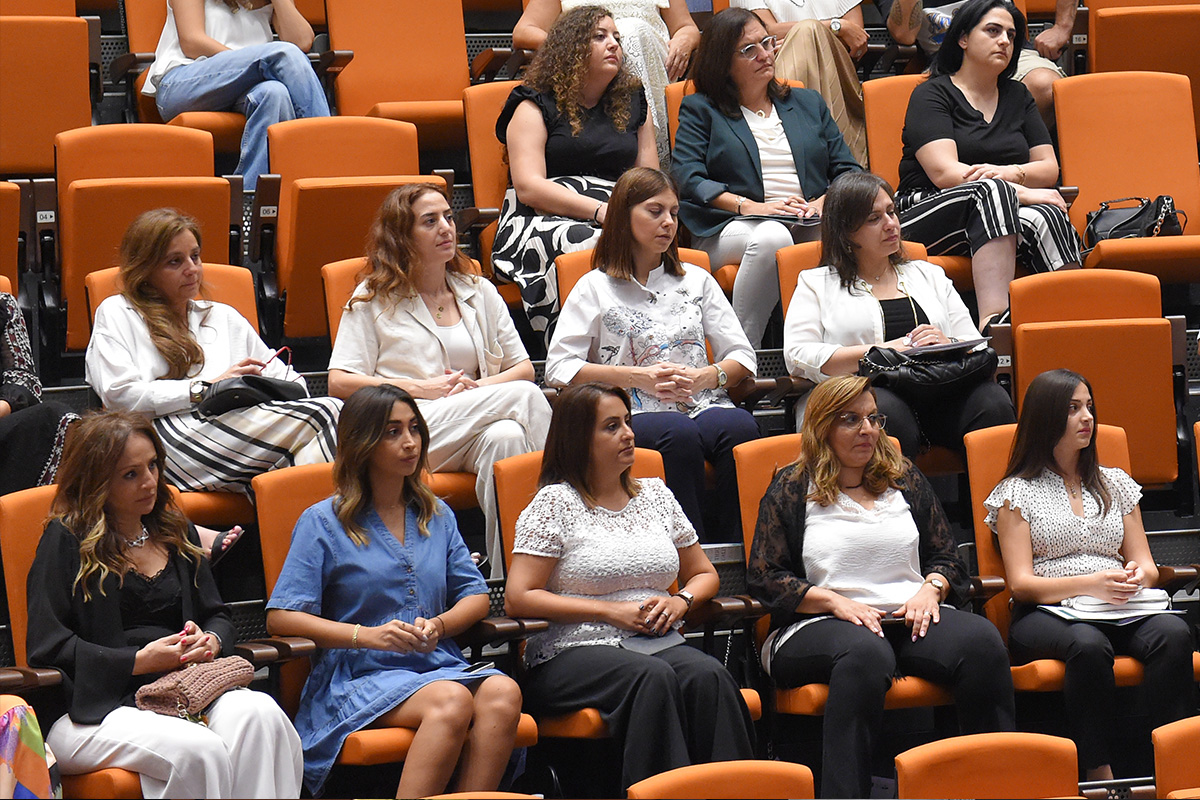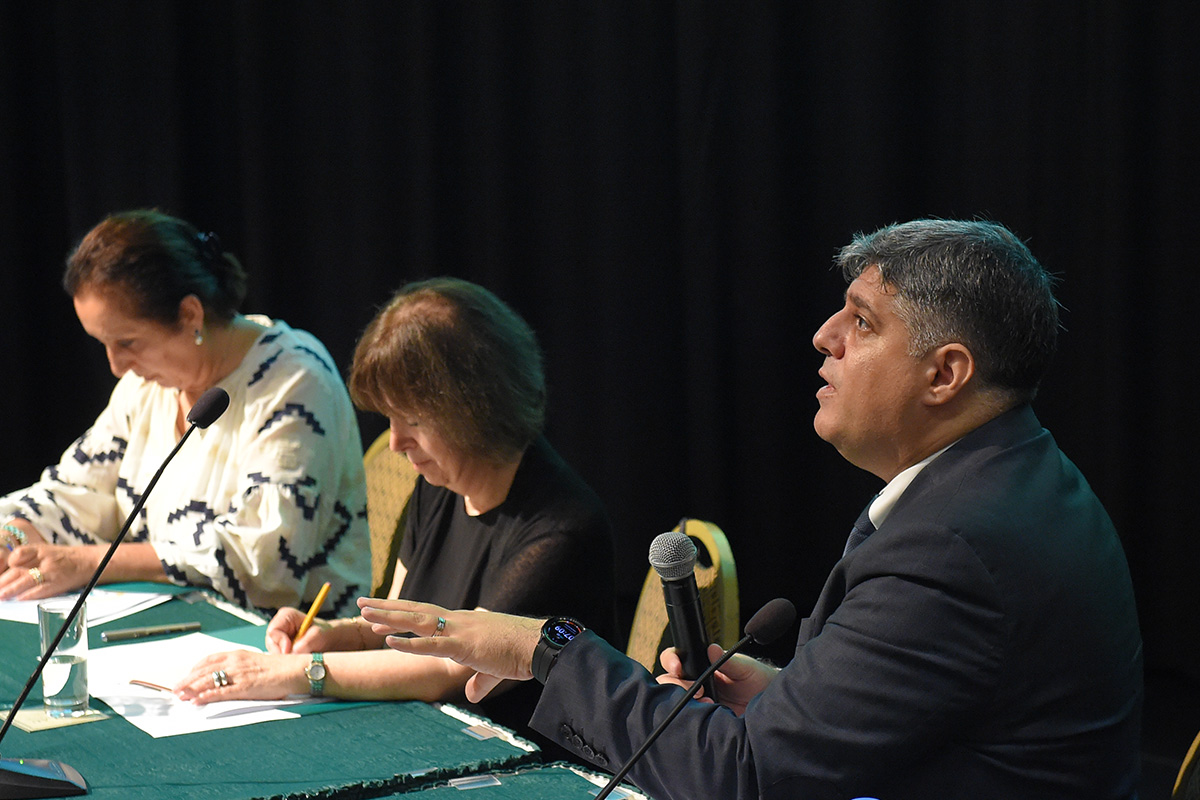The Closing Chapter on the Teacher Development Program
The Department of Social and Education Sciences marks the end of its two-year professional development program catering to Western Armenian educators in Lebanon.
On September 22 and 23, the Department of Social and Education Sciences held the symposium and closing ceremony of the two-year Teacher Development Program for Armenian Schools in Lebanon launched in 2021.
Funded by the Calouste Gulbenkian Foundation (CGF) in Portugal, the program offered practical and theoretical development training sessions to school teachers of Western Armenian in Lebanon to assist educational institutions in embracing novel pedagogical practices and methodologies that facilitate language acquisition.
A variation of Modern Armenian, Western Armenian has been classified by UNESCO as ‘potentially vulnerable.’ Spoken mainly by the Western Armenian diaspora, the language runs the risk of disappearing as present and future generations abroad integrate into their new cultural surroundings. The project aims to equip educators of Western Armenian with the necessary tools to help propagate it and save it from extinction.
A total of 24 educators from several Armenian elementary and high schools in Lebanon were trained by experts in educational development to work toward an academic system that empowers them in their scholarly pursuit of knowledge transfer.
Through workshops, seminars, practical experiences and action research, the teachers acquired the latest teaching methods in differentiated and culturally responsive instruction in correspondence with Armenian schools’ standards. They worked on implementing collaborative learning, goal setting, technology integration, reflective practice and long-term, needs-oriented strategies to nurture a positive school culture for educators and students.
“It was a privilege to have the opportunity to practice the theory you learn in a school setting with people who are quite knowledgeable in their field,” said elementary teacher Laucine Kazanjian.
Her fellow trainee, Maria Boyadjian – also an elementary teacher – added that the program helped them to “replenish our knowledge and experience genuine autonomy in teaching with care and efficiency.”
The symposium at the Gulbenkian Theater, LAU Beirut campus, was attended by the program’s graduates and active individuals in the education field. It was moderated by the assistant coordinator of the program, Khatchig-Hrag Derjian.
In her welcoming speech, Assistant Dean of the School of Arts and Sciences and Associate Professor of Education Rima Bahous commended the success of the program, from enhancing educators’ skills and providing multidisciplinary training to offering innovative teaching methods.
The result is a lasting positive impact on the Armenian language and culture as educators are empowered to contribute to the preservation and development of the language, she added. “I also want to address the pivotal role CGF played in funding and supporting this program as well as express my appreciation to the educators for their commitment.”
Among the speakers, CGF Senior Program Officer for Western Armenian and Education Ani Garmiryan, Director of the Mohammad Zeidan Academy for Training and Development in Saida Randa Darazi and Vice President for Educational Development and Technology at International College Mahmud Shihab highlighted the importance of these acquired skills in fostering classroom innovation, cross-cultural understanding and educational advancement.
According to CGF Director of the Armenian Communities Department Razmik Panossian, offering language programs can help the Armenian community defy the threat to its mother tongue and safeguard its cultural heritage against historical challenges. “The need for teaching the language as a means of promoting its preservation and development has never been more critical,” he said.
On the second and final day of the closing ceremony, 23 of the 24 trainees who attended presented their active research on the practical application of the knowledge and skills acquired during their professional development journey and received certificates of participation.
“LAU’s Education Department has a long history of providing professional development programs for teachers in Lebanon and the region,” noted Dr. Bahous. “This was just one of the many ways we as an institution strive for the betterment of society and its educational stature.”